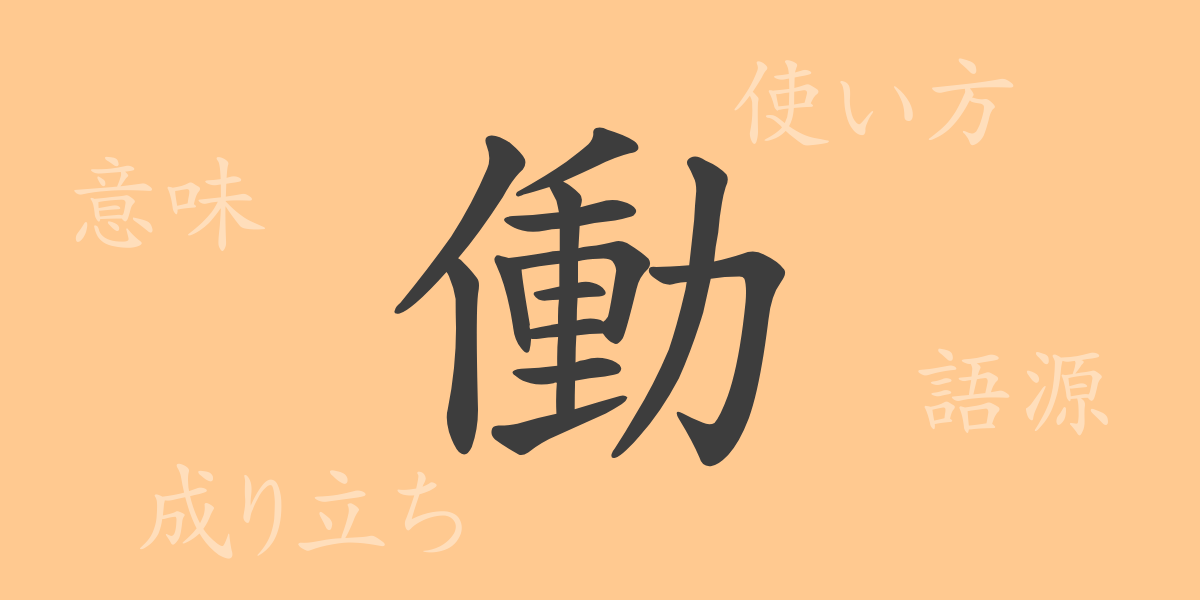In Japanese society, the character ‘働 (どう)’ signifies more than just a symbol. It represents economic activity, personal identity, and societal values. This article delves into the commonly used Kanji ‘働’, exploring its origins and contemporary usage. We invite you on a journey to rethink the significance of work and grasp the profound impact of this single character.
Origins of ‘働 (どう)’
The Kanji ‘働’ originates from ancient China. It is a compound word meaning a person ‘人’ moving ‘動’, literally indicating human activity. In ancient China, people’s labor was the foundation of livelihood, and this character symbolized its importance. In Japan, ‘働’ appears frequently in literature, reflecting a culture that values labor and diligence.
Meaning and Usage of ‘働 (どう)’
‘働’ primarily means to work or labor, encompassing not just physical tasks but also mental efforts and activities. Nowadays, this character is used in various contexts, including discussions on work-style reform and work-life balance. It also pertains to the pursuit of fulfillment at work, seen as a process through which companies and organizations create value.
Readings, Stroke Count, and Radical of ‘働 (どう)’
The Kanji ‘働’ holds basic yet essential information within the Japanese language.
- Readings: On’yomi ‘ドウ’, Kun’yomi ‘はたら(く)’
- Stroke Count: Total of 15 strokes
- Radical: Person (ひと・にんべん)
Phrases, Idioms, and Proverbs Using ‘働 (どう)’
‘働’ is included in many idioms and proverbs, reflecting Japanese views on work and diligence. For instance, ‘働き者 (はたらきもの)’ describes someone who is industrious and does not shy away from labor. ‘働き盛り (はたらきざかり)’ represents the age or period of peak activity. The proverb ‘働けど働けど我が暮らし楽にならざり’ expresses the lament of working hard yet not seeing an improvement in one’s life conditions.
Conclusion on ‘働 (どう)’
The Kanji ‘働’ deeply intertwines with the lives of the Japanese, representing a critical concept. From its origins to its varied uses today, this character conveys deep respect for labor and the significance of work. As society changes and work evolves, the value of ‘働’ remains constant, continuing to play a central role in our culture and language.

























